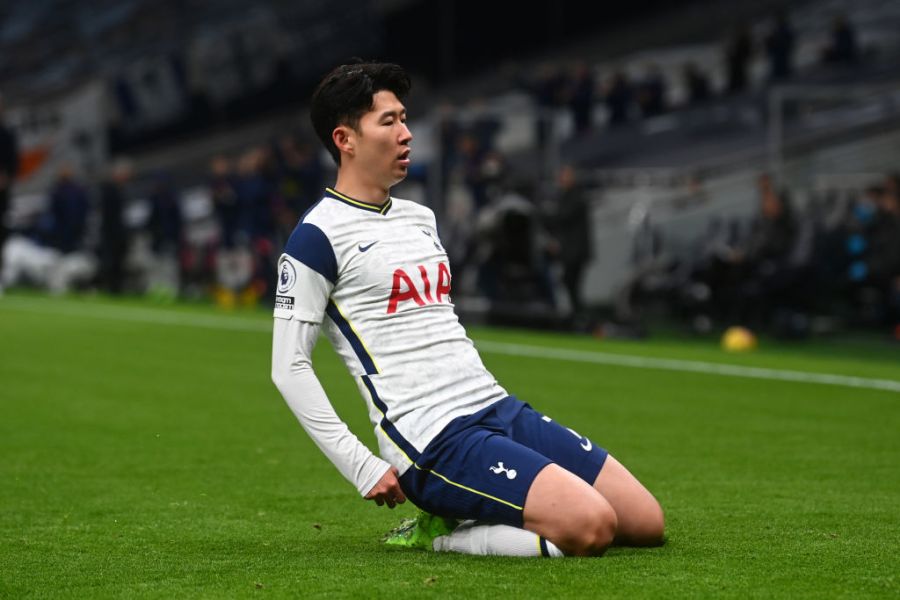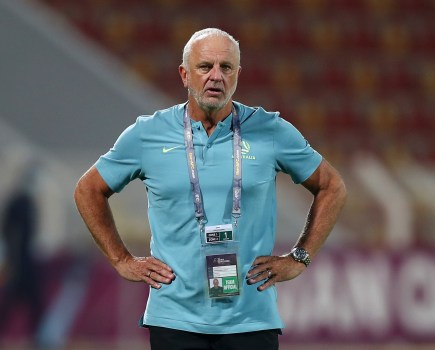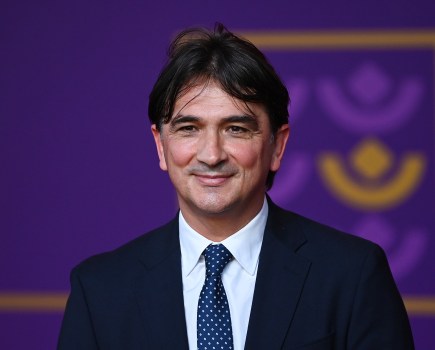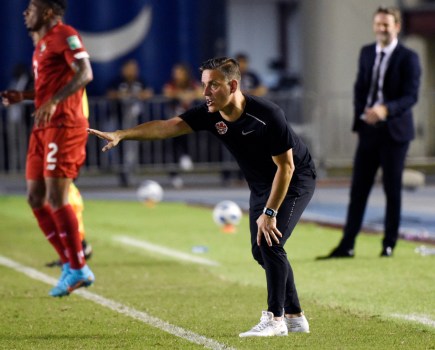The Tottenham forward is enjoying the best season of his career, and he’s put in the hard yards to get here
Don’t be fooled by the broad smile that seems etched upon his face. If the explosive Tottenham and South Korea forward is now established as a Premier League, Europe-wide and Asian sensation, it’s mainly through the efforts of his alter ego – the single-minded competitor who has pursued his career dreams with rare tenacity.
Dedication, thy name is Son. Making the grade as an elite player was all he ever wanted from life and on joining the Hamburg SV academy at the age of 16 in 2008 – initially on a Korean federation exchange programme, then on a permanent basis – he was determined not to waste that all-important first stint in Europe. A workaholic in every sense, he treated every day at the HSV youth facility in Ochsenzoll as a God-given opportunity to graft and get ahead. Pure energy, pure obsession.
“While some of the boys [at the academy] played table tennis in the afternoon after training, I’d go back onto the pitch to work on my shooting technique,” Son recalled in an interview with the Hamburger Abendblatt newspaper. “Some used to advise me to switch off from football from time to time. My answer to that was to secretly carry on training. Football always has been everything to me. I love the game, I breathe it, I dream of it.”
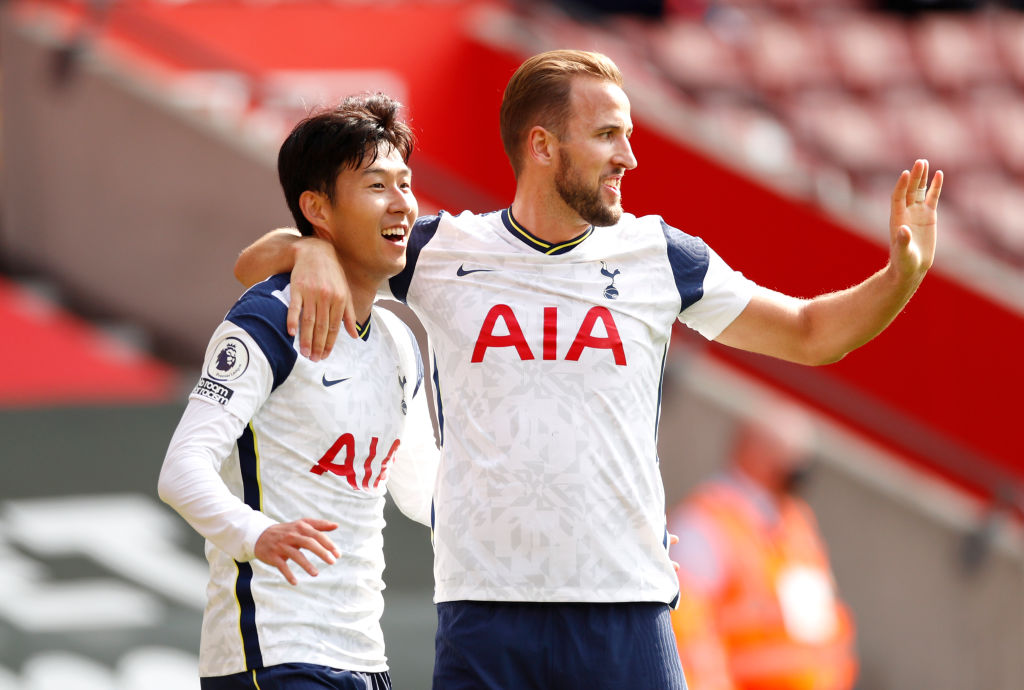
Germans generally take great pride in the intensity of purpose they bring to a football pitch. But here was young Son thoroughly outdoing them in the application stakes. “Even when he wasn’t supposed to train, he’d join in with the sessions of other groups,” HSV academy colleague and friend Alexander Lukesch told German news website Watson.de. “He’d be doing push-ups, running laps and went as far as to do extra work on his own. A lot of us were thinking: ‘it’s already dark’, and after two training work-outs, you need to rest. He’d go to bed early, get up at daybreak and train like someone possessed.”
It says everything about his desire to make a pro splash that in his five years with HSV (2008-13), Son had little taste for nightlife. His was an existence based almost entirely on the training ground, stadium and home. Nothing else mattered. Not surprisingly for one with his eyes fixed on the prize of a full-time contract, he proved an assiduous absorber of the German language. Thanks to daily lessons from a Berlitz School tutor, he quickly got to grips with the grammar of this most complicated of tongues, topping up his linguistic skills with a heavy schedule of TV programmes, including his favourite cartoon, SpongeBob SquarePants.
What Son was essentially doing in those formative years in Hamburg was religiously following the life lessons of his father, Son Woong-jung. The latter was no mean footballer himself – good enough to play for top South Korean outfit Ilhwa Chunma and the country’s Under-23s, before a nasty Achilles injury ended his career at just 28 – and set about drumming home the message that success in soccer could not be achieved on a wing and a prayer, that it was a difficult and exhausting industry which required absolute commitment.
His father, all homespun philosophy and authoritarian granite, not only drilled his two sons (Heung-min and the older Heung-yun) individually; he also coached Son’s school team, devising a training programme as unique as it was demanding. For two hours every day, the regime was the same: incessant ball-juggling, learning how to control the sphere with every part of the body and intricate dribbling drills. It was basic, it could be cruel and cocking a snook at usual youth development ideas, Son Woong-jung would not even allow his boys to play in organised matches. Only at the age of 14 was Heung-min given the green light to do so.
Tough love was very much the long and short of this football education. Son has since admitted that his father never praised him, only communicating in rebukes and reproaches. Son stuck with the programme nevertheless. He still loved football and looked up to his dad. He had no wish to offend him.
Son Woong-jung, now running a football academy in the family’s hometown of Chuncheon in the northern province of Gangwon, was wont to overdo the master and slave scenario. Following an altercation between his two sons, his father punished them by ordering to play keepy-uppy for four hours straight. Somehow, defying gravity and fatigue, they complied. On another occasion the grandmother of a neighbour, aghast at the sight of more paternal heavy-handedness, threatened to call the police.
When Son scored on his Bundesliga debut for Hamburg in a 3-2 win in Koln in October 2010 – a cheeky effort in which he clipped the ball over the onrushing keeper before coolly converting – his father’s reaction was typical of the uncompromising taskmaster. No back-slapping or hearty congratulations, just a list of “could do better” items and a requisition order for the youngster’s laptop. Apparently he did not want Son to run the risk of growing complacent on a diet of rave reviews. Contrast his dad’s glacial reaction to that of HSV boss Armin Veh: “At 18, Son can do things which other professionals cannot pull off at 30.”
No one can say, though, that Son Woong-jung solely wielded the big stick. Here was a man who was so concerned with the safety of his pupils that he would pick up stones from the field prior to every training session and regularly made the long trip to Hamburg to visit his son. The work ethic and carpe diem mentality he instilled in his son has left the 28-year-old Tottenham winger or striker with a golden legacy.
Equally crucial was Son Woong-jung’s insistence on exemplary ball-skills. Perfectly two-footed, Son’s technical mastery is there for all to see. Little wonder he is so versatile, able to exploit his pace and tricks anywhere along the front-line. His dad, it is claimed, based his finesse-first approach on the belief that a certain lack of razzle-dazzle held him back in his own career.
Son is well aware of the huge debt he owes his father: “Without him, I wouldn’t be here,” declared Sonny in the London Evening Standard in 2018. “He gave me my attitude, helped me with so many things.”
Simultaneously guru, promoter, agent and severest critic, Son’s father unquestionably deserves plenty of credit for the Asian superstar story that has unfolded. However, he was not the only one to plot the world-beating course. Others played a significant part too, not least agent Thies Bliemeister and Hamburg youth coach Soner Uysal, who first spotted Son – then an Under-15 international – on a scouting tour of South Korean academies in 2008. Uysal says he was immediately struck by Son’s game awareness and intelligence. Bliemeister was so enamoured with the youngster that he became his representative, a position he still holds today.
Son himself is full of praise for the care and attention that coaches at Hamburg lavished upon him. And nobody helped him as much as HSV assistant coach/head coach Michael Oenning, who worked ceaselessly at ironing out the wrinkles in the youngster’s play, and improving his tactical nous. Oenning says the Korean was always a special talent, happy to point out that even on Son’s first day of training with the professionals in the summer of 2010, the then 17-year-old was a sheer showstopper.
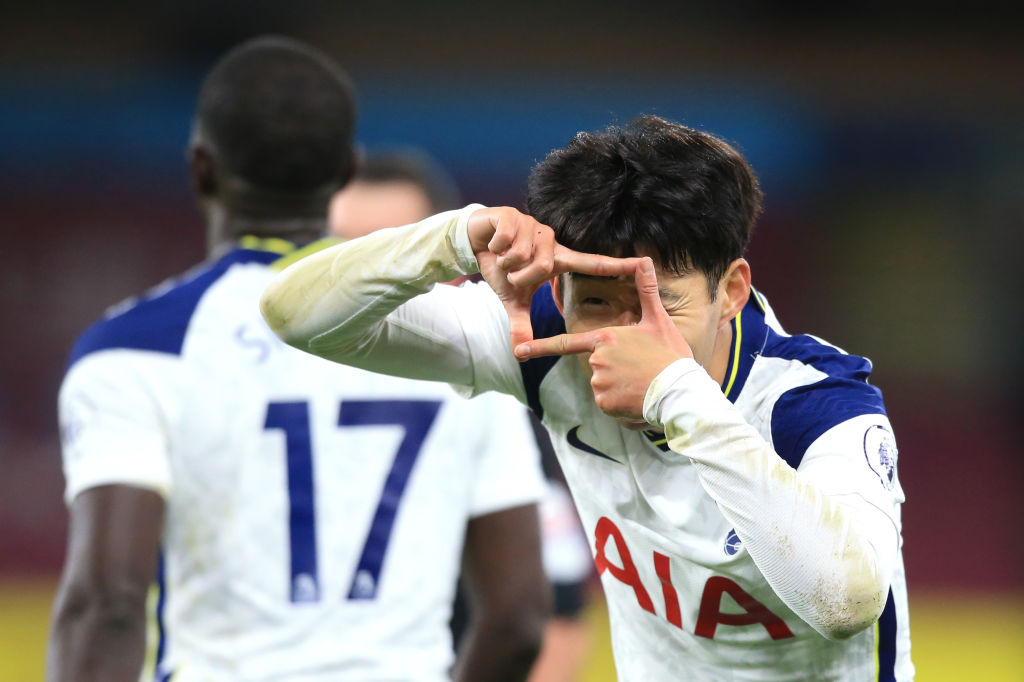
“I told him, in the first instance, to look to play in striker Ruud van Nistelrooy,” revealed Oenning in conversation with Hamburg sports reporter Kai Schiller. Oenning need not have bothered. Minutes later, Son gained possession, took on and beat a string of defenders and slotted home. “He straight away realised he’d gone against my orders. Instead of a little celebration, he put his hands to his head and ran over to apologise to Van Nistelrooy.” Bashful and repentant: classic Son.
Despite scoring no fewer than nine goals in that pre-season – including one in a friendly against Chelsea – his first-team breakthrough would have to be put on ice. Late in the Chelsea game, he broke his foot, forcing him to the sidelines for a couple of months.
Tottenham manager Mauricio Pochettino would prove to be another key mentor. Acquired from Bayer Leverkusen for £22 million in 2015, Son found the going tough in his first season in the Premier League – a starter in only 13 games and accumulating just four goals. He was sufficiently frustrated to contemplate calling it quits, only for Pochettino to persuade him to knuckle down and fight for his place. Wise counsel indeed. The following campaign he was considerably more productive (34 competitive starts and 21 goals) and has been an automatic choice ever since, carving out a niche for himself as one of the most effective forwards in the country. His achievements for Spurs speak for themselves: a starring role as the club came runners-up in the 2018-19 Champions League and 100 goals in all competitions.
Central to Son’s form in North London has been his partnership with Harry Kane, particularly this season. In the Premier League era, no duo has combined to score more often in one season. The previous record of 13 – held by Chris Sutton and Alan Shearer for Blackburn Rovers in 1994-95 – was matched after just 16 matches. That goal – a cross by Kane turned in by Son at home to Leeds – took them to a grand total of 32 goal combinations, four short of the all-time record held by Frank Lampard and Didier Drogba. The former Chelsea heroes are unlikely to hold that particular record for long.
As well as dovetailing effectively with Kane, Son was also regularly used as a replacement for the frequently injured England front man by Pochettino. The ex-Spurs boss knew he could always rely on the Korean’s great movement and powers of penetration to lead the line. Over the years, he became one of the Argentine’s most trusted lieutenants, personifying his energetic style of football better than anybody.
As for Son, he could rest assured that Pochettino was in his corner. The perfect example came in 2018, when South Korea put in a request for Son to take part in the Asian Games in Indonesia. Spurs were not legally obliged to release him, and with Kane out injured at the time, had even more reason to confine him to Premier League duties. But aware how much the competition meant to Sonny personally – the South Korean authorities had promised the squad military service exemption if they struck gold – Pochettino successfully fought for the player’s wishes to be respected. Suitably motivated to pull out all the stops, Son and company duly brought home the no-barracks bacon, beating Japan 2-1 in the final.
In South Korean representative circles many coaches have enabled his rise. Cho Kwang-rae, once one of the country’s best-ever midfielders, handed him the first of his 89 full caps in a friendly victory over Syria in December 2010. Son also learned a great deal under the wing of Hong Myung-bo, a classy former national team sweeper who played in no fewer than four World Cup finals. Early on in his time with the Taeguk Warriors, Son struggled to translate his impressive form with Hamburg to the international stage. But with Hong calling the shots, he visibly grew in assurance, very much at the fore of World Cup 2014 warm-up victories over Switzerland and Greece and establishing himself as one of the side’s go-to players. Another milestone was passed in 2018 when Shin Tae-jong gave him the captaincy for the first time.
Unfortunately for Son, the two World Cups he has featured in have only brought heartache. In Brazil in 2014, the South Koreans failed to win a single game in the group phase and deservedly were sent packing. For Son, whose sole highlight that summer was a goal in a 4-2 defeat to Algeria, early elimination was just too much to handle, breaking down in tears at the end of his side’s 1-0 defeat to Belgium and having to be comforted by a fatherly Hong.
Four years on, at the World Cup in Russia, he and his fellow countrymen once again failed to clear the first round hurdle, though at least he had the satisfaction of scoring in the 2-0 giant-killing of holders Germany.
Like most professionals, he has had to grin and bear his bad times too. His three Premier League red cards in 2019 damaged his reputation somewhat. So did his controversial departure from Leverkusen in August 2015. After netting 29 goals in two seasons at the BayArena and contributing to a pair of high-end Bundesliga finishes (fourth on both occasions), he could not have been more popular in this part of the Rhineland. However all was to turn sour early in the 2015-16 campaign, with Son effectively forcing his way out on the eve of a Champions League qualification play-off second-leg against Lazio. Leverkusen did not appreciate the timing of his exodus or the fact that he slipped out the back door without a goodbye. Cue plenty of vitriol, most of it aimed in the direction of Son senior and his “bad advice”.
Yet for Son, it was too good an opportunity to miss. Playing in the Premier League had always been his number one career objective. This was his moment and he sprinted flat out in order to seize it.
Representing his country has not exactly been a bed of roses either. In the autumn of 2011, his father sparked a storm by suggesting that Son’s national team appearances should be rationed, that he should only be called upon “when they really need him”.
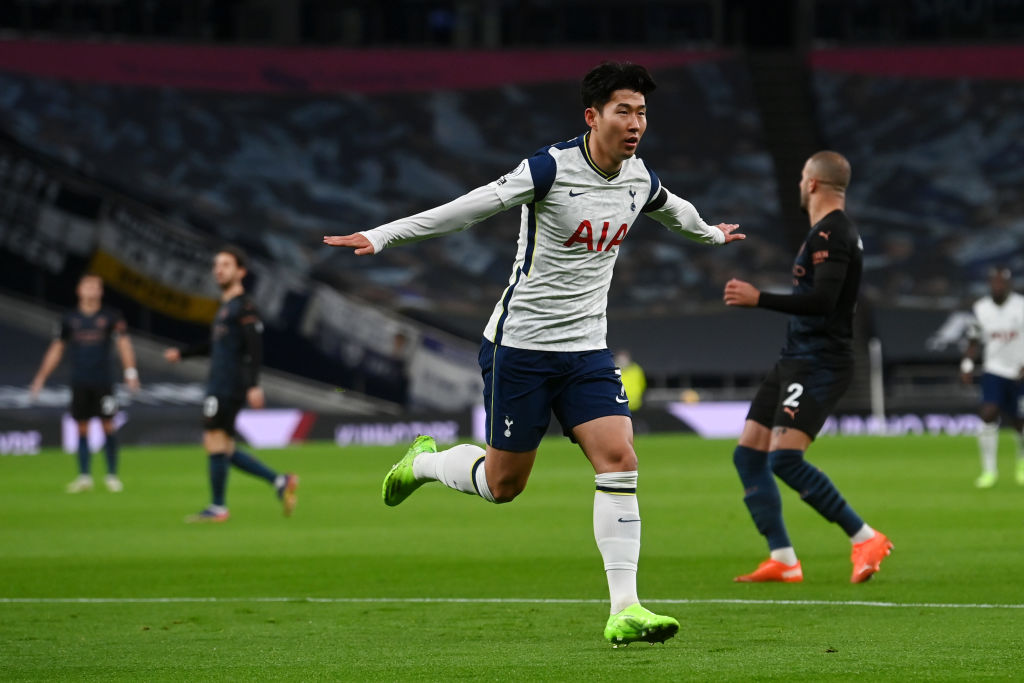
Eyebrows were similarly raised when he opted out of the 2012 Olympic tournament, ostensibly to concentrate on his career in Germany. Four years later, in Rio, he came in for more Olympic criticism after South Korea were beaten at the the quarter-final stage by Honduras in a surprising 1-0 defeat.
South Korea’s German coach Uli Stielike certainly was not a fan, enraged when Son twice reacted badly to being substituted in games in 2016 against Spain and China, kicking a water bottle, then throwing a towel in the direction of the bench. “His behaviour off the pitch could be problematic,” declared Stielike. “Lots of spectators and TV viewers will have seen this. I have to think of the entire team. Every player has to careful.”
It just goes to show: even someone as naturally level-headed as Son can, on occasion, fall prey to the red mist. Heroes have their frailties too.
Article by Nick Bidwell
This article first appeared in the March Edition of World Soccer. You can purchase old issues of the magazine by clicking here.

